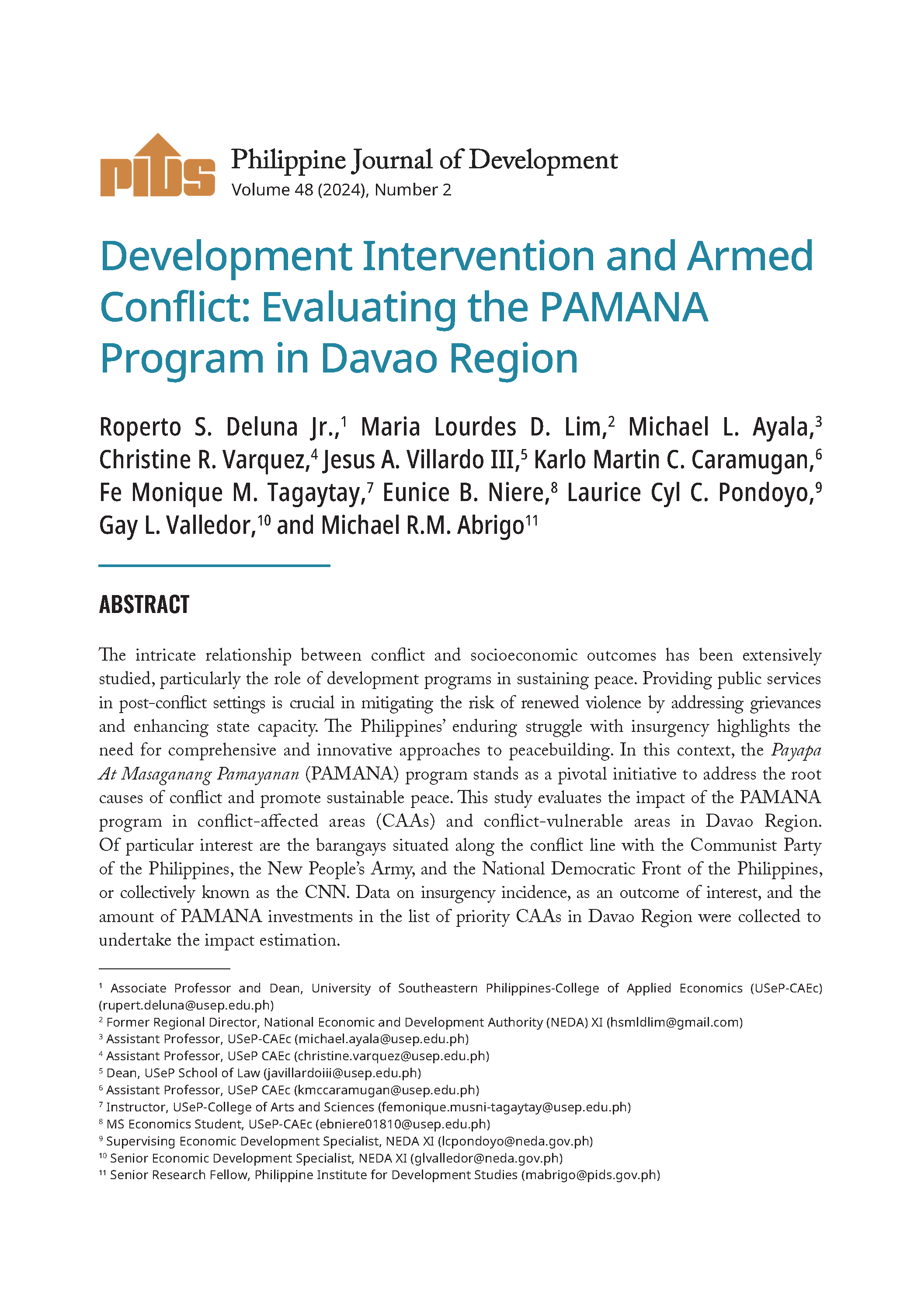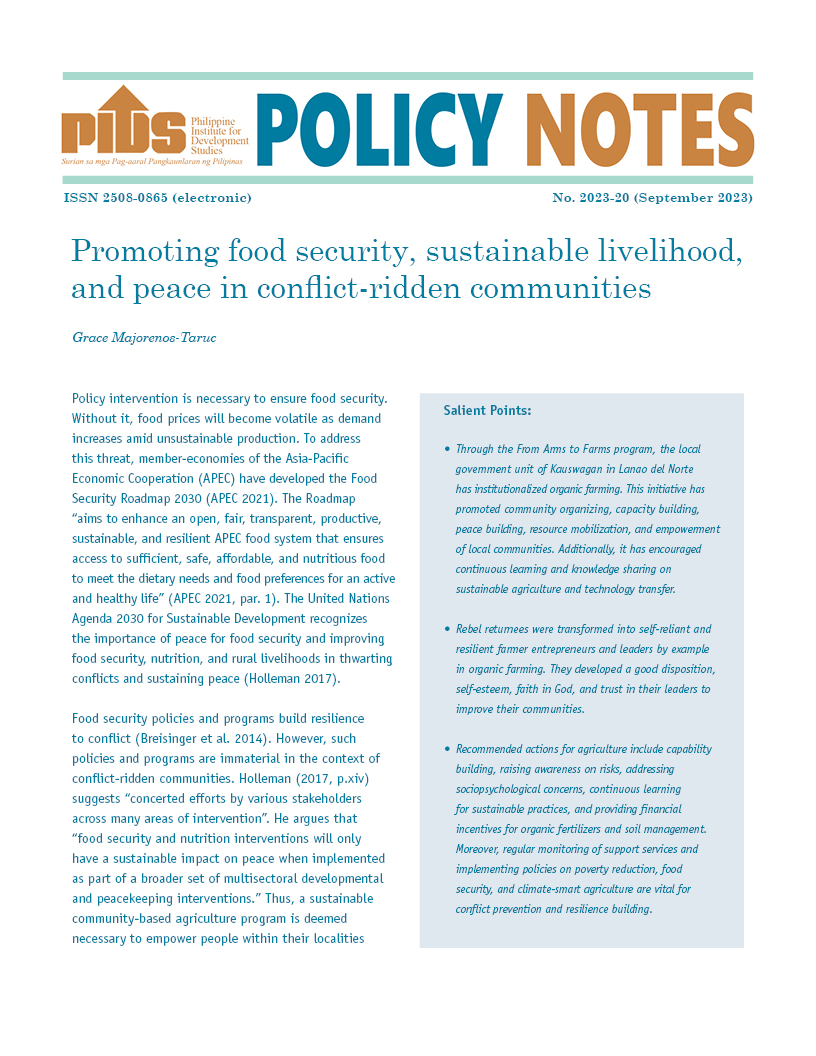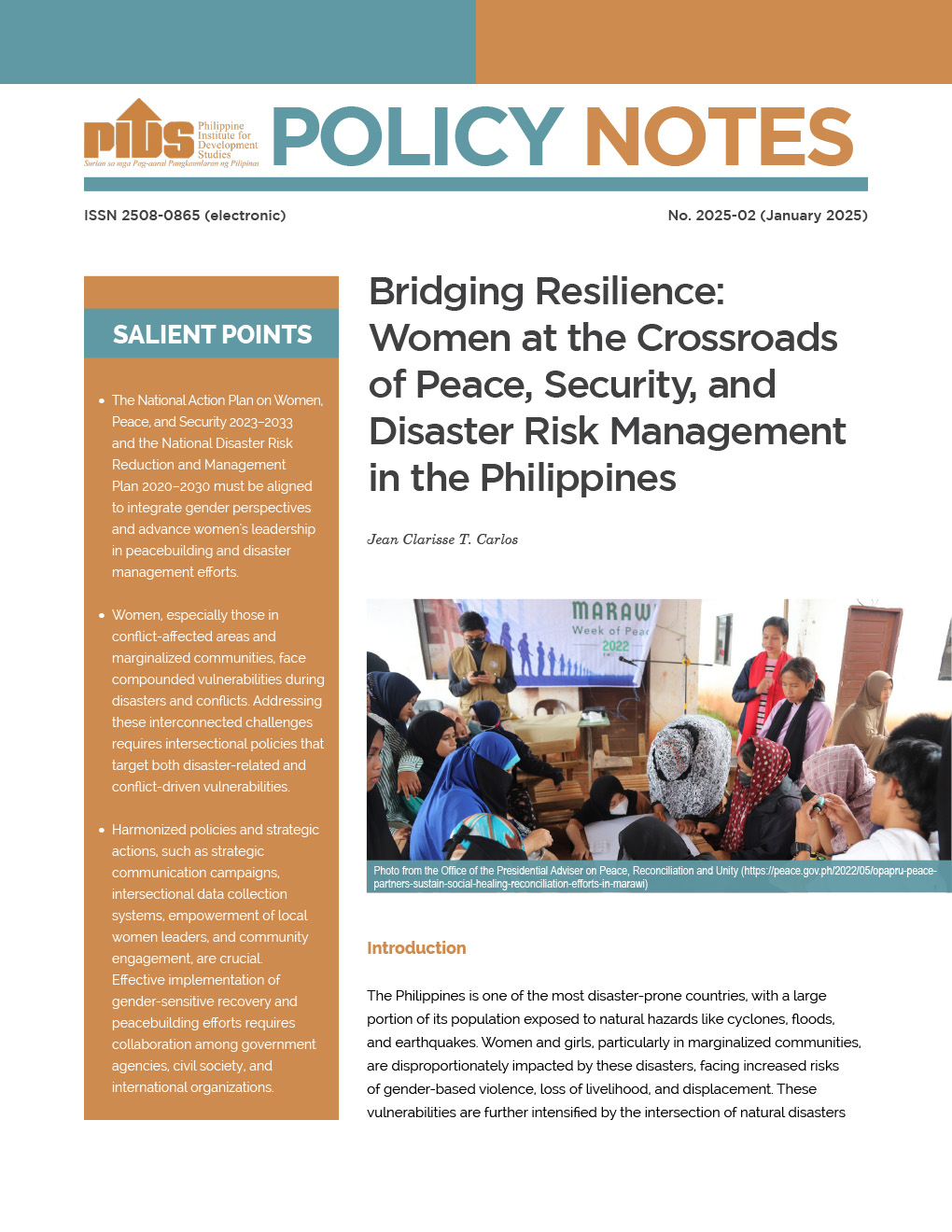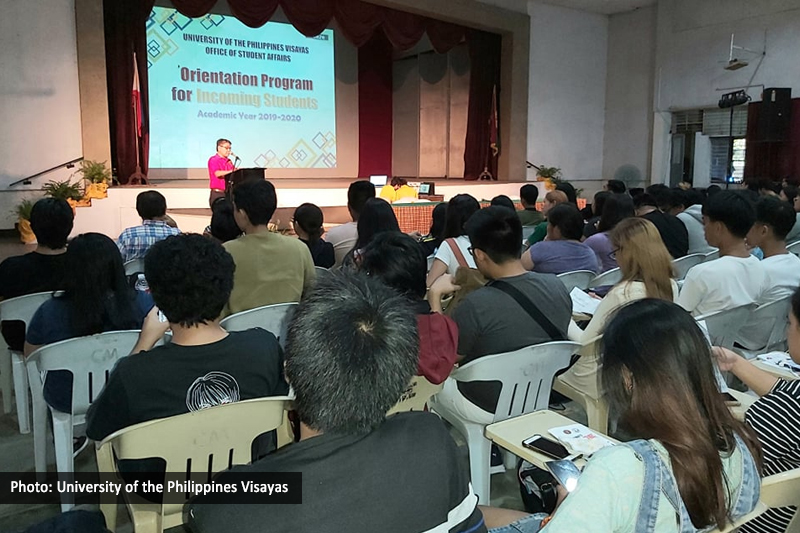The Payapa at Masaganang Pamayanan (PAMANA) program plays a crucial role in addressing the root causes of conflict and fostering sustainable peace in the Philippines, particularly in conflict-affected and conflict-vulnerable areas. This study evaluates PAMANA’s impact in the Davao Region, focusing on barangays along conflict lines. Using data on insurgency incidence and program investments, the study employs an advanced difference-in-differences (DID) approach to account for PAMANA’s staggered implementation across barangays. Results reveal a significant short-term increase in insurgency incidence in PAMANA areas, indicating that development interventions may provoke resistance from insurgency groups. Long-term trends suggest a general reduction in insurgency beyond the study period, but this cannot be definitively linked to PAMANA without further analysis. The findings highlight the complex dynamics of development interventions in conflict settings. These results underscore the importance of adaptive implementation strategies and provide valuable insights for policymakers designing peacebuilding efforts in regions affected by protracted conflict.













